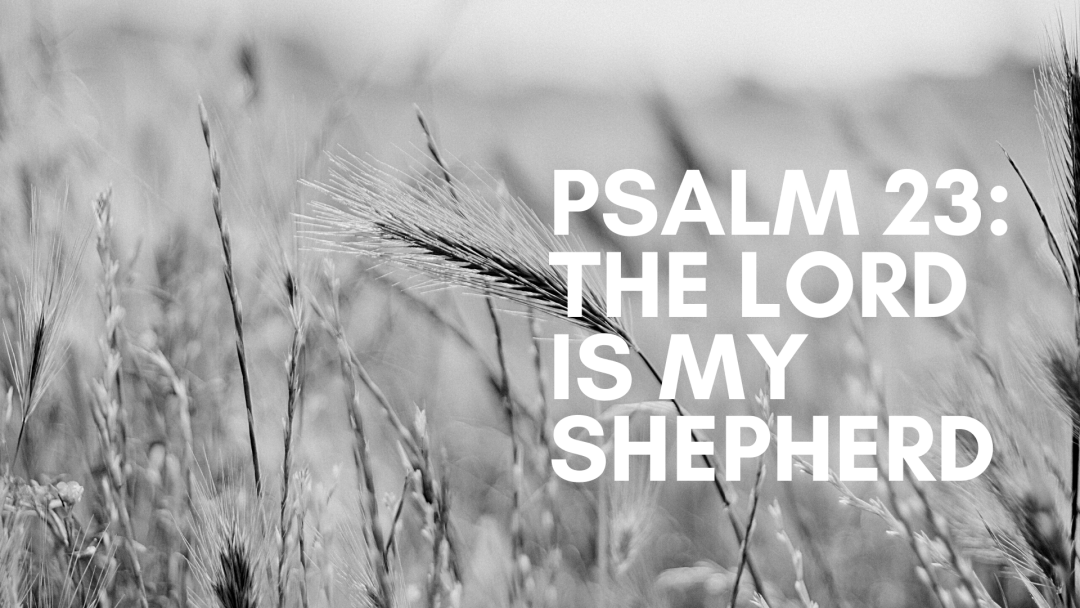
I’ve mentioned before that as a young boy growing up in an Indian church, I thought the Sunday morning service was boring. Let’s put this in context. I was a kid, so I also thought school was boring, yet it’s the boring things in childhood that actually help shape you into the person you become as an adult, and looking back, you appreciate their great value. One of the things I found interesting about the Indian Church service was the Psalm reading. After the song worship, every Sunday morning, a deacon or elder would lead the Psalm reading, and we would read it responsively (the one leading would read a verse, and the congregation would respond with the next verse and so on).
For reasons I couldn’t understand at the time, I seemed to enjoy how the whole church joined in with the reading in a singsong fashion, helping me resonate with the language and the poetry of the psalm being read. I found it easier to memorize these verses, unlike other verses in the Bible. Responsive reading helped me to memorize Psalm 23. Yet today, I find that such forms of worship have fallen out of favor, maybe because they tend to become ritualistic or perhaps due to the length of time the reading takes (it does make the service longer). Either way, the Psalms remains an important book of the Bible and echoes our human heart through lines of Hebrew poetry and hymns.
Life Under The Shepherd
Psalm 23 is the most popular of all Psalms, with the first verse being the most well-known among Christians, “The Lord is my shepherd, I shall lack nothing,” [NIV] (although, the King James Version of “I shall not want” really confused me as a kid). The psalm was written by David, and it gives a glimpse into his humanity and God’s love toward him. Many articles, study guides, and commentaries have been written that expound upon David’s humble expression in these verses. In David’s comparison of God as his shepherd, we see through verses 1-4 how God provides, refreshes, restores, guides, and comforts. According to Matthew Henry’s Commentary, this psalm is “the expressions of delight in God’s great goodness and dependence upon him.”
But then I read verse 5, and I get the impression that David wrote it with a much deeper meaning, having a greater understanding of the character of God. Our focus will be on how the verse starts, “You prepare a table before me in the presence of my enemies.” This shows God’s graciousness and generosity in hosting a feast with a table full of food and drink, and regards David as an honored guest at the table, as implied by the rest of verse 5 “You anoint my head with oil; my cup overflows.” The anointing of oil can also indicate a special status or the recognition of God and his blessing (kings and priests were anointed with oil). Yet the part “in the presence of my enemies” holds a deeper meaning.
The God Who Serves
David lived in a polytheistic society in which neighboring cultures would believe in multiple deities. These adjacent people groups, who would often be hostile to the Israelites like the Philistines, had their own pagan religions. They would perform rituals to present food and drinks, spread bountifully on a table, before their idols. Hoping that they have found favor with their gods with their tribute, they would offer their prayers to their deities.
David pens the verse “You prepare a table before me in the presence of my enemies” in an attempt to show not just his enemies but all of Israel that the Lord was the one true God. It’s as if he was saying to these pagan religions, “You serve food and drinks to your god, but my God serves me with a feast! You prepare a table before your god, but my God prepares a table before me! He anoints me with oil. My cup overflows.”
Imagine David’s enemies witnessing this, confused and frightened by a God who is willing to love and serve. Verse 5 serves as David’s statement of confidence of the love of God. It’s a declaration to his enemies that “the things you must do to make your god love you, my God freely does for me out of love.” Note that David is not gloating or being self-righteous. Keep in mind that before the verses of the Lord preparing a table, David has walked “through the darkest valley” (verse 4), a very low moment in his life that must have humbled him. He understood his earthly state in this broken world. But through God’s gracious comfort brought on by his rod (correction/protection) and staff (guidance), David fears no evil in those dark times. God is with him through it all.
With that in mind, David proclaims that God’s love is vast and immeasurable. He is undeserving and unentitled to it. He understands that love is the quality missing from all his adversaries’ attempts in serving their unresponsive gods and idols.
The Psalms is a fantastic book of the Bible, and Psalm 23 encourages me every time I read it. Through these verses, David teaches us that we have an all-powerful Father in heaven who has given us his perfect love. There is nothing we can do to make Him love us more and nothing we can do to cause Him to love us less. We need not fear any dark times in our lives, nor any adversary that comes against us. Our Good Shepherd is with us. Regardless of our journey, God’s goodness and love will follow us all the days of our lives (verse 6). His love is like a great table, abundant with food before us.
